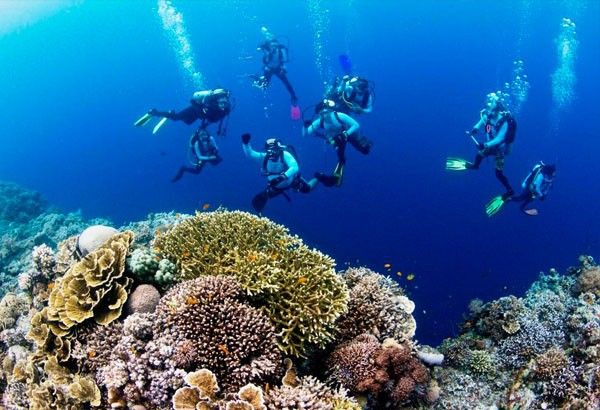World’s coral reefs dying of bleaching

MANILA, Philippines – Nearly all of the world’s coral reefs, including those in the Philippines’, risk dying of annual severe bleaching (ASB) due to climate change if the world fails to reduce pollution, a United Nations-supported study has revealed.
The finding about severe bleaching, the gravest threat to one of the Earth’s most important ecosystems, is part of a study funded by the UN Environment Program (UNEP) and partners, which reviewed new climate change projections to predict which corals will be affected first and at what rate. The report is published in the journal Nature Scientific Reports.
Calling the predictions “a treasure trove” for environmentalists, the head of the UN agency, Erik Solheim, said the projects allow conservationists and governments to prioritize reef protection.
“The projections show us where we still have time to act before it’s too late,” Solheim said.
Researchers found that the reefs in Taiwan and the Turks and Caicos archipelago would be among the first to experience annual bleaching, followed by reefs off the coast of Bahrain, in Chile and in French Polynesia.
“A similar gradient (noted in Papua New Guinea) is seen in the Philippines with eastern sides of the eastern islands projected to experience ASB more than 20 years earlier than central islands,” the study uncovered. “The Philippines and eastern PNG results are likely explained by the eastern sides of these areas having greater exposure to the western Pacific warm pool, which has higher warming rates than SE Asia.”
On average, the reefs started annual bleaching in 2014, according to the study.
The coral reefs need at least five years to recover, but without this, the study noted, annual occurrences of bleaching would have a deadly effect on the corals and disrupt the ecosystems that these corals support.
“However, if governments act on emission reduction pledges made in the Paris Agreement, which calls on countries to combat climate change and limit global temperature rise to below two degrees Celsius, the corals would have another 11 years to adapt to the warming seas,” the UN News Center reported.
Between 2014 and 2016, the world witnessed the longest global bleaching event recorded, the report said. Among the casualties was the Great Barrier Reef, with 90 percent of it bleached and 20 percent of the reef’s coral killed.
- Latest
- Trending


























